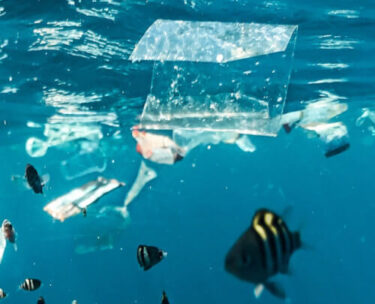
The UNEA Plastics Treaty is poised to be a game-changer in the global fight against plastic pollution. As negotiations advance, businesses have a unique opportunity to align their strategies with this emerging international framework. Proactively addressing the upcoming regulations and commitments within the UNEA Plastics Treaty will not only demonstrate environmental leadership but also offer a competitive edge in a sustainability-driven market.
The current state of plastics
Ongoing research continues to demonstrate the consequences of plastic production and use. At an individual and local level, recent studies have shed more light on the impact of certain kinds of plastics on human health and our environment. Meanwhile, plastic pollution also continues to be a global problem, with some studies claiming that plastic in the oceans could outweigh all marine life combined over the next 15 years.
Still, plastic plays a key role in our lives and economy. Over the past few years, companies have faced the challenge of producing science-based solutions for the plastics crisis while continuing to harness the material’s benefits. Actions often include setting goals and procurement strategies across sectors. Unfortunately, the confusing and diverse regulatory landscape and set of consumer needs and sentiment doesn’t help in driving harmonisation. Perhaps an internationally binding plastics treaty, like the one being worked on by the United Nations Environmental Assembly (UNEA), can help generate a much-needed synchronised approach.
What happened in Ottawa, Canada?
The fourth session of the Intergovernmental Negotiating Committee to develop an international legally binding instrument on plastic pollution, including the marine environment (INC-4), took place in Ottawa between the 23rd and 29th of April. Throughout the session, intense discussion paved the way for a potential agreement by the end of 2024. Currently, a text of the final agreement is being drafted with the aim of finalising the document during the next negotiating session, INC-5, which will take place in Busan, Korea, in November 2024.
This presents a unique opportunity for businesses to be proactive in shaping a sustainable future. Here’s a breakdown of the key areas on the table and what the Ottawa talks revealed:
- Production Controls: Limiting virgin plastic production and incentivising recycled content were central themes. Although this area is unlikely to secure consensus, it’s possible we may see regulations that push for higher recycled content percentages or bans on specific single-use plastics. Furthermore, new ideas, such as limiting or taxing emissions during production, have been introduced. Although there will be exceptions to key industries, such as healthcare, companies should begin prioritising recycled content where possible.
- Extended Producer Responsibility (EPR): The Ottawa talks highlighted strong support for EPR schemes, making producers financially responsible for post-consumer plastic management. Companies should prepare for investment opportunities associated with collection and recycling infrastructure.
- Transparency: Proposals for mandatory reporting on plastic use and lifecycle assessments gained some traction. Businesses need to be ready to quantify and disclose their plastic footprint.
- Sustainable Design: The discussions emphasised the need for innovative packaging solutions. Companies should invest in R&D for eco-friendly materials and designs that minimise plastic use.
- Chemical Additives: Restrictions on harmful chemicals like BPA and phthalates are possible. Companies should proactively reformulate products to avoid these chemicals and consider creating chemical management systems frameworks.
- International Cooperation: Collaboration between nations was a key focus. Businesses with international operations should be prepared to adapt to regional variations in regulations that may arise from the treaty.
- Innovation Incentives: The discussions highlighted potential support for innovation in recycling technologies and infrastructure. Companies can explore partnerships with waste management businesses to create efficient recycling solutions.
- Bioplastics and Compostability Standards: Discussions around regulating bioplastics and ensuring their actual biodegradability are ongoing. Companies exploring bioplastics should ensure they meet relevant standards.
The geopolitical landscape
The final treaty will likely be a compromise. Developed nations might push for ambitious production controls, while developing economies may advocate for flexibility in managing waste infrastructure challenges. Much will be learned between now and INC-5 about the final text of the agreement; and the months following will reveal more about how each country will implement it.
Don’t wait for the final gavel to fall: Take action on plastics now!
Here’s what you should be doing now to prepare your business for a sustainable future:
- Conduct a plastic footprint audit to understand your plastic usage across the entire supply chain.
- Explore innovative, sustainable packaging solutions. Partner with suppliers who prioritise eco-friendly materials and designs.
- Develop a strategy for compliance with the emerging regulatory landscape. Proactive companies will be better positioned to navigate the changing environment.
- Engage with policy makers to advocate for workable and effective regulations. Your voice can help shape a sustainable future for all.
Be a sustainability leader in the fight against plastic pollution
The UNEA treaty presents a unique opportunity for businesses to demonstrate leadership in environmental stewardship. Don’t get caught off guard. Anthesis, a leading sustainability consulting firm with packaging engineers, product designers, LCA experts, material science experts, and chemists, can help your company navigate these complex challenges. Our team of experts can guide you through plastic footprinting, identify sustainable packaging solutions, and develop strategies for compliance with the emerging regulatory landscape. Contact Anthesis today and unlock a future free from plastic pollution. Together, we can build a more sustainable and profitable future for your business and our planet.
Discover our Plastic Sustainability Solutions
We are the world’s leading purpose driven, digitally enabled, science-based activator. And always welcome inquiries and partnerships to drive positive change together.




